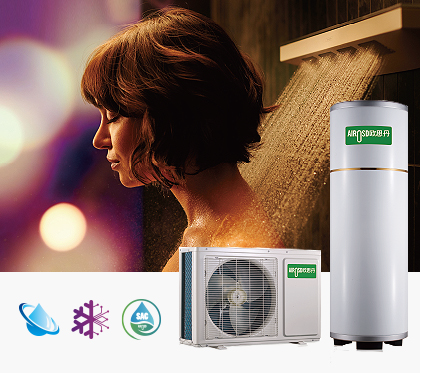Heat pumps have gained significant attention as one of the most energy-efficient heating and cooling systems available today. With rising concerns about environmental sustainability and energy saving, these devices have grown popular in both home and business settings. But what exactly makes heat pumps so efficient? In this article, we delve into the technology behind heat pumps and explore the factors that contribute to their impressive energy efficiency.
Understanding Heat Pumps
A heat pump is a versatile heating and cooling system that operates on the principle of transferring heat from one location to another. During the winter months, it may absorb heat from the exterior air, ground, or water sources and transmit it within for warmth. In the summer, the procedure may be reversed to evacuate heat from inside rooms, effectively cooling the environment.

Key Components Of Heat Pumps
Here are some key components of heat pumps:
Evaporator Coil: This component is responsible for absorbing heat from the surrounding environment. The refrigerant (a specific fluid used in heat pumps) collects heat from the outside air or other sources as it evaporates within the coil.
Compressor: The refrigerant vapor is then compressed by the compressor, increasing its temperature and pressure. This procedure increases the refrigerant's energy level, preparing it for the next stage of the cycle.
Condenser Coil: In this stage, the heated refrigerant releases the absorbed heat into the indoor space as it condenses back into a liquid state. This heat is subsequently dispersed throughout the structure by means of air handlers or radiators.
Expansion Valve: After releasing heat indoors, the refrigerant is allowed to expand through the expansion valve, lowering its pressure and temperature and preparing it for the next heat absorption cycle.
.png)
All In One Heat Pump Water Heater Factory
Factors Contributing To Efficiency
Here are some factors contributing to efficiency:
Energy Source
The efficiency of a heat pump is influenced by the source of the heat it extracts. Heat pumps can draw heat from various sources, including the outdoor air, ground, and water bodies like rivers and lakes. The temperature difference between the heat source and the desired indoor temperature affects the efficiency of the system. Modern heat pumps are intended to extract heat efficiently even in cold areas, and technological advances have enabled them to run well even when ambient temperatures are rather low.
Coefficient Of Performance (COP)
The Coefficient of Performance (COP) is a critical metric that quantifies a heat pump's efficiency. It represents the ratio of heat output to the amount of energy input. For every unit of electricity consumed, a heat pump with a COP of 3 generates three units of heat energy. Modern heat pumps are designed to reach COP values exceeding 3, making them very efficient alternatives to traditional heating systems.
Refrigerants
The choice of refrigerant has a significant impact on both the efficiency and environmental sustainability of a heat pump. Older refrigerants, such as R-22, have been phased out due to their high global warming potential and negative impact on the ozone layer. Newer refrigerants, such as R-410A and R-32, have reduced environmental implications and add to heat pump efficiency.
.png)
Variable Speed Compressors
Modern heat pumps often incorporate variable-speed compressors that adjust the cooling and heating output based on the specific demand. Unlike traditional systems that cycle on and off to meet temperature needs, heat pumps with variable-speed compressors can modulate their operation to match the required output more precisely. This not only improves comfort but also decreases energy consumption and wear and strain on the system.
Defrost Technology
In colder climates, frost and ice buildup on the outdoor coil can hinder the heat pump's efficiency. To counteract this, modern heat pumps are equipped with intelligent defrost cycles. These cycles periodically switch the heat pump into a cooling mode to melt the accumulated frost. The device minimizes unnecessary energy waste and preserves efficiency even in icy situations by defrosting in a regulated manner.
Conclusion
Heat pumps stand out as remarkably efficient heating and cooling solutions due to their ability to transfer heat rather than generate it directly. By utilizing advanced technologies, refrigerants, and design principles, they achieve high levels of energy efficiency while minimizing environmental impact.
If you are looking for highly efficient heat pumps, AIROSD is your good choice! Please feel free to contact us for more product details!



